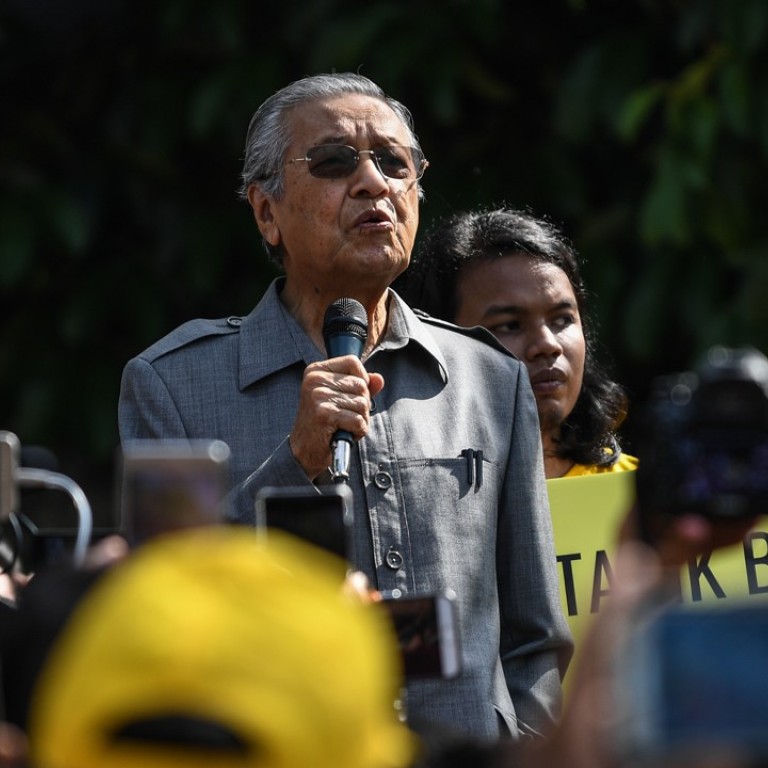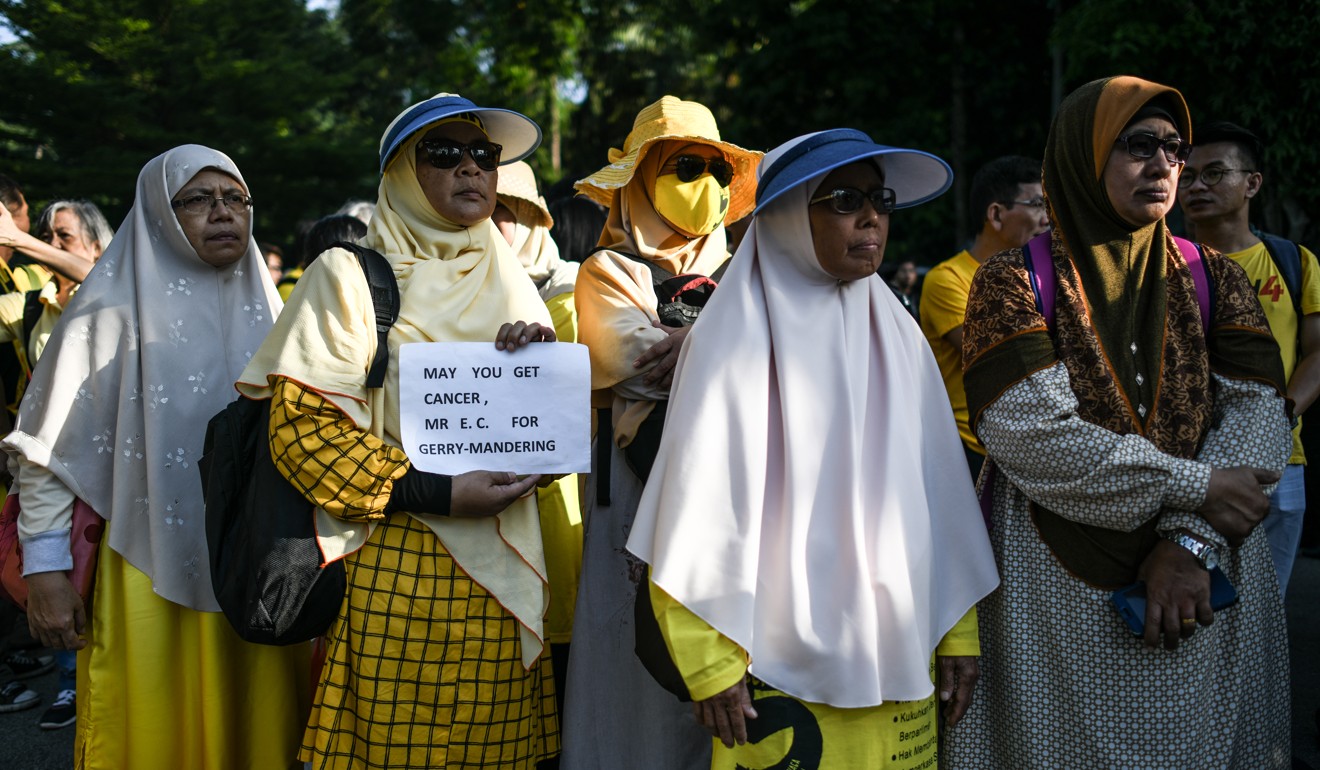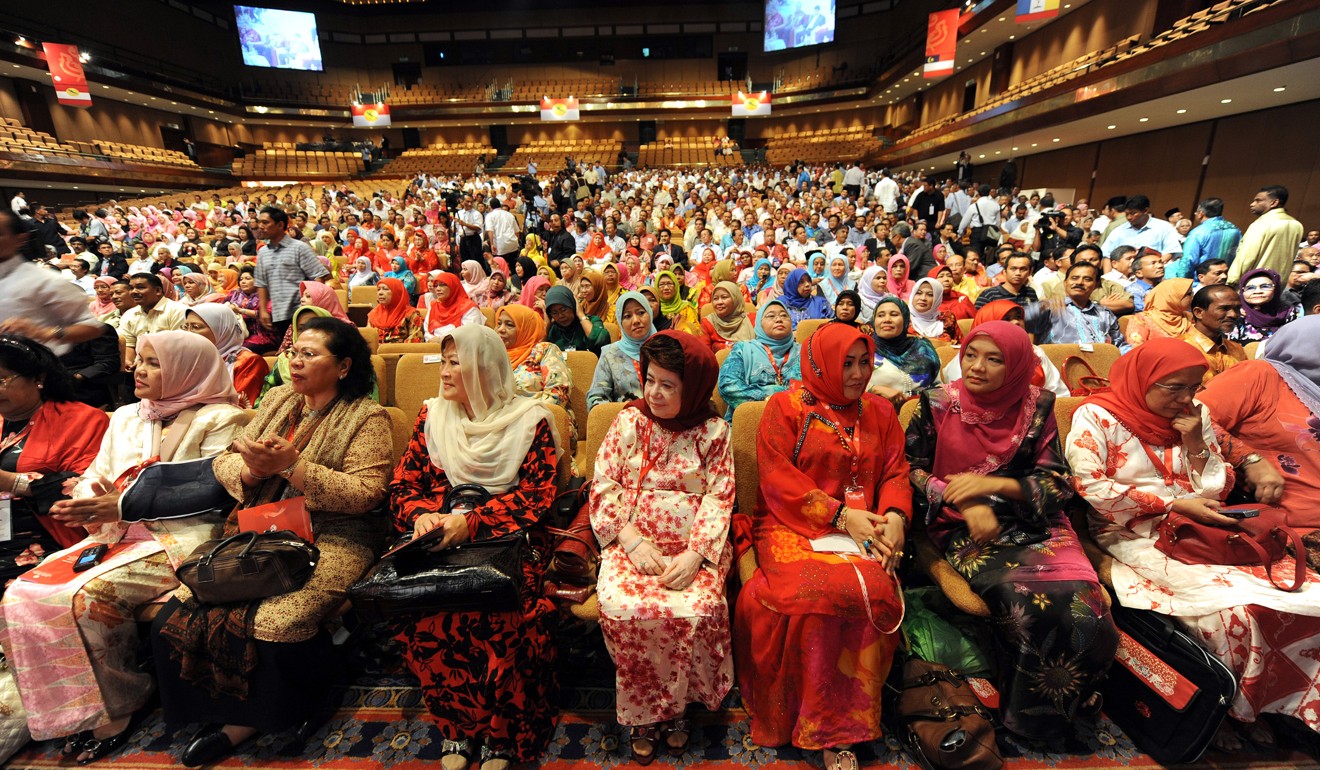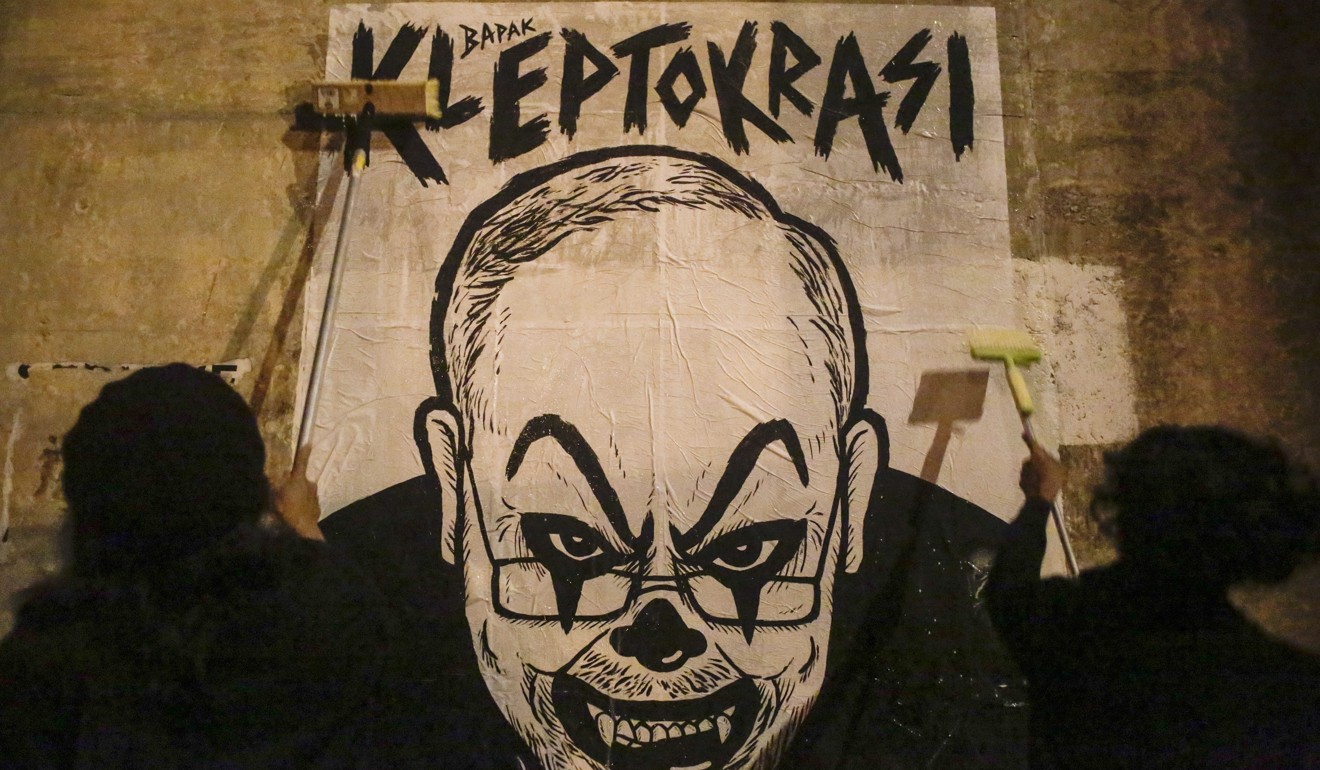
Did Najib just pocket the Malaysian election? Opposition uproar as Barisan Nasional forces through boundary changes
Prime minister uses majority to ensure drastic redrawing of constituency boundaries in Pakatan Harapan strongholds – firing the starting gun for general election and signalling dissolution of parliament within days
Malaysian Prime Minister Najib Razak’s government on Wednesday pushed through controversial changes to the country’s constituency boundaries, a move opposition lawmakers immediately slammed as an attempt to steal a general election expected to be held within weeks.
Najib’s Barisan Nasional used its majority in the 222-seat legislature to force through the new constituency boundaries late in the afternoon, just hours after it was tabled.
The former premier Mahathir Mohamad, who leads the opposition after defecting from Barisan Nasional in 2016, said at a protest rally before the vote that “these coming elections will most certainly not be clean”.
At the event near parliament, Mahathir decried the premier as a “monster” and a “rogue” for forcing through the changes. The pro-democracy activist Maria Chin was quoted as saying the new electoral map was the “biggest cheating to ever happen”.

Inside the legislature’s chambers, Speaker of Parliament Pandikar Amin Mulia offered lawmakers ten minutes each to debate the issue, with a total of 14 lawmakers from both sides taking part.
Raucous proceedings saw opposition lawmakers hold up signs with the phrase “rise up to stop cheating,” when the speaker called for a vote.
Confusion also ensued after Pandikar ejected the bloc’s senior leader Lim Kit Siang, but later allowed him to remain in the chamber.
Najib told parliament the changes were necessary because of significant demographic changes in the country of 32 million people since the last boundary alteration in 2003.
Members of the opposition Pakatan Harapan had earlier told This Week in Asia they would “throw in the “kitchen sink to fight the changes, which drastically redraws dozens of ward in their strongholds.
What could go wrong for Najib when Malaysia goes to the polls?
With the new boundaries now ratified, observers say the premier is likely to dissolve parliament within days, triggering polls before the beginning of the Islamic holy month in mid May, three months ahead of an August deadline.
Recent Malaysian polls have been tightly contested affairs despite repeated complaints from the opposition of unfair elections.

This year’s contest has garnered particularly strong international interest because it pits Najib, haunted by a series of scandals since he came to power in 2009, against Mahathir, the 92-year-old former strongman premier who was once his mentor.
Responding to This Week in Asia queries, a Barisan Nasional spokesman dismissed the opposition’s complaints of electoral manipulation as a strategy to mentally prepare supporters for likely defeat.
“The opposition will continue to say the elections are dirty as this is a tactic that they use to gain sympathy and also give them an excuse when they lose,” said Eric See-To, the Barisan Nasional spokesman.
The trillion-ringgit puzzle in the Malaysian election
The new electoral map proposed by the election commission maintains the total number of parliamentary seats at the current 222.
Barisan Nasional currently holds 132 seats, while Pakatan Harapan has 72 seats. The Islamist party Parti Islam SeMalaysia, a member of the opposition until last year, has 13 seats.
Pakatan Harapan’s main grouse is that, in states like Selangor which it governs, seats have been markedly redrawn compared to the boundaries used in the 2013 election.

In the final map tabled on Wednesday, the electoral boundaries of some 40 per cent of Selangor’s state and parliamentary seats will be drawn based on a 2016 proposal by the election department.
That is a departure from a revised second proposal tabled last year.
This second proposal saw the election department reverse some changes in the 2016 map after nearly 800 objections from voters and Pakatan Harapan over malapportionment – the creation of constituencies of significantly uneven sizes.
The latest map however reverts to the 2016 version. The reason for this reversal is not addressed in the redelineation report to be tabled in parliament.
Is Malaysia ready to move on from Najib’s one-man show?
Local electoral experts say the election commission – statutorily an independent body – for decades has been lumping largely opposition-leaning ethnic minority and urban voters into highly populated constituencies.
On the other hand, seats in the country’s Malay-populated rural areas – Barisan Nasional’s vote bank – are carved out to have far few voters.
This means a Barisan Nasional candidate in general needs fewer votes than an opposition lawmaker to win elections under the country’s “first-past-the-post” system.
Malapportionment is viewed as the reason why Barisan Nasional triumphed in the 2013 election despite garnering 47 per cent of the popular vote.
This practice of malapportionment “blatantly defies the principle of one person, one vote, one value,” said Wong Chin Huat, a psephologist with the Penang Institute, a think tank funded by the state government of opposition-held Penang.

‘KITCHEN SINK APPROACH’
“It’s going to be a ‘kitchen sink’ approach from us. We have no choice … with the latest changes reverting to the 2016 proposal the election will be stolen from right under our noses,” one senior opposition lawmaker told This Week in Asia under condition of anonymity.
Charles Santiago, a Pakatan Harapan MP for the Klang ward in Selangor, said it was “clear the election commission has acted in bad faith”.
The lawmaker is among those calling for the Speaker of Parliament Pandikar Amin Mulia to disallow Wednesday’s debate on the grounds that legal challenges are still pending on the redelineation exercise.
The Court of Appeal, Malaysia’s second highest court, will deliver a ruling to one of the cases on Thursday.
Wong Chen, another Pakatan Harapan lawmaker in the Selangor state, said “international investors should be very concerned if the election is rigged and lacks legitimacy.”
Will insulting Robert Kuok cost Najib and Barisan Nasional the Malaysian election?
Keen observers of Malaysian politics meanwhile also joined the chorus of complaints over the redelineation exercise.
“It is by the far the worst case of electoral manipulation in Malaysia’s history and one of the most egregious in the world,” said Bridget Welsh, an expert on Malaysian politics based in Italy’s John Cabot University.
Welsh said if ratified, the changes would give Najib a chance to win a two-thirds majority in parliament. Barisan Nasional has not had a parliamentary supermajority since 2008.
Said Welsh: “My estimate is that it will affect one third of the entire seats in favour of the government and shape the state government competitions in six states – Selangor, Perak, Johor, Trengganu, Kelantan and Sabah.”

Wong, the elections expert, said the latest redelineation exercise threatened to make the country “an electoral one-party state where a kleptocrat survives”. Najib’s political opponents have often described him as a “kleptocrat” in the aftermath of the multibillion dollar corruption scandal at the state fund 1MDB in 2015.
Najib has strenuously denied accusations that he funnelled hundreds of millions of dollars from the fund to his personal accounts, even though ongoing international investigations suggest otherwise.
Instead, he has turned public attention towards the country’s economic turnaround after the initial plunge in investor confidence and the value of the Malaysian ringgit following the scandal.
Amid the furore over the new boundaries, Barisan Nasional has maintained similar message discipline, instead of engaging with tit-for-tats with the opposition.
See-To, the coalition spokesman, told This Week in Asia on Tuesday “in any redelineation exercise, some of their [opposition’s] seats will be stronger and some will be [weaker].
“You win some and you lose some, but if what you are selling is a strong and convincing story, there is nothing to fear.”

